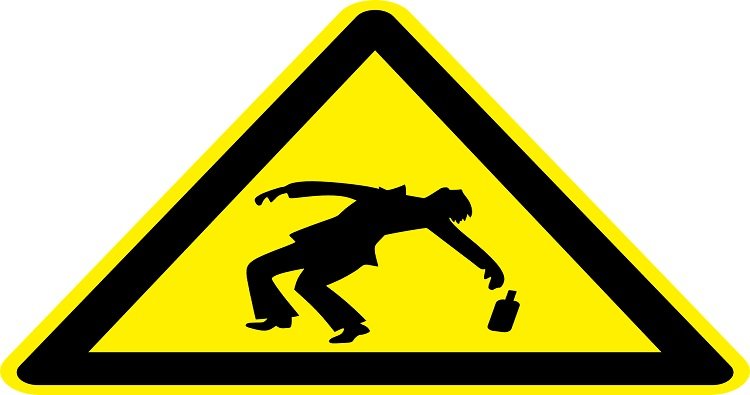- + 91 9958444373
- Malviya Road Dehradun, UK, India.
Blogs detail

Domestic Violence & Sexual Assault: 2 Evils of Society
- 2020-08-10
Such an ironic paradox, in various countries at one end women deities/Goddesses are worshipped and at the other end same people commit heinous crimes towards their own goddesses at home called wives, daughters-in-law, and bahu.
In various countries the women are worshiped as goddesses yet still commit heinous crimes towards their own women. Women as well as other sexual orientations, all over the world have been subjected to various forms of abuse and this abuse has been increased during the period of lockdown.
Women’s safety has been a major concern, domestic violence and sexual assaults are the two evils against basic humanity.
Domestic violence is a major problem worldwide. In India, the Protection of Women from Domestic Violence Act 2005 (PWDVA) also includes economic abuse under the definition of domestic violence.
Women in India are subjected to violence not from their husband but from their in-laws and family as well.
Sexual assault or rape or sexual violence is referred when the person engages in a non-consensual sexual act with other person. it is the fourth most usual crime against women in India.
What is included in Domestic Violence?
Domestic violence refers to violence or other abuse in a domestic setting, such as in marriage or cohabitation. Domestic violence is also known as intimate partner violence, which is committed by a spouse or partner in an intimate relationship against the other spouse or partner, and can take place in heterosexual (same-sex) relationships, or between former spouses or partners. It's not limited to spouses only, domestic violence also involves violence against family members such as children, parents, or the elderly.
Hegemonic masculinity itself refers to the promotion of the aforementioned male expectation of dominance over women (Smith & Kimmel, 2005), the adherence to which has been found to be related to male perpetrated violence towards women and attitudes conducive to partner violence in a number of contexts (Gallagher & Parrott, 2011; Greene & Davis, 2011; Moore & Stuart, 2005).
What comes under sexual assault?
Rape, even attempted rape
Fondling with sexual parts
Any kind of non-consensual sexual act with a person, underage child, person with disability.
Sexual harassments
Forcing someone to send naked pictures
Peeping, exhibiting sexual body part
Verbal or visual harassment
Penetration of penis inside the vagina
Let's get to know the various forms of domestic violence, are as follows:
Physical abuse: it includes any harm towards the body of the victim such as slapping, choking, beating, female genital mutilation, hitting with belt, homicide and acid attack
Verbal: it includes passing cruel verbal remarks to the victim such as lewd statements, abusing, demeaning remarks to the family etc.
Psychological/Emotional abuse: it includes producing harm to the mental health by using threats, humiliation, intimidation, denial, blame, guilt
Economic abuse: it includes not giving independence over financial matters, restricting the victim's property rights.
Religious abuse: it includes harassing the victim in the name of religion. The abuser exploits the victim in name of faith.
Reproductive, and sexual abuse: it happens when the abuser controls the reproductive choices of victim such as, trying to have a child when the victim doesn't wants, use of threats to get their way. Harassing the victim if they refuse such as not using condoms, hiding away the birth control pills, etc.
Marital rape: it means having non-consensual sex in the name of marriage, as fulfilling the man’s desire is considered to be the duty of a woman, which is totally absurd.
And
Acid throwing that results in disfigurement of face or any body part and sometimes even death.
Extreme levels of violence include:
Stoning, bride burning, honor killings, and dowry deaths (which sometimes involve people outside family).
Because of the patriarchal dominated culture, some of the violence against women is tolerated, justified, accepted and even entirely dismissed in the name of “marriage” or “pati parmeshwar”.
Let's get to know the various forms of sexual assault, are as follows:
Date rape: it’s typically committed by someone who is known on a social basis. It can be done with the help of alcohol intoxication on a date
Gang rape: it occurs when a group of people rapes a single victim. It’s considered gang rape with two or more than two person.
Payback /revenge rape: it occurs when the motive of rape is to get revenge. It is meant to humiliate and bring shame upon the father or brothers, as punishment for their prior behavior towards the perpetrators.
Child rape: it occurs when an underage child is sexually assaulted. It may be done by family members a.k.a. Incest rape, caregivers, school teachers, school staff.
Serial rape: is rape committed by a person over a relatively long period of time and committed on a number of victims. Here the rapist is unknown to the victim and follows a specific and predictable pattern of targeting and assaulting victims.
Prison rape: it occurs when the attacker is another prison inmate or prison staff.
Corrective rape: it is a hate crime towards LGBTQ+ community. It's targeted towards homosexuals, transsexuals etc. as a punishment for violating the traditional gender roles.
Custodial rape: it’s committed towards the victim that is under the custody of perpetrator. It may be a government official, police officer, hospital employee or public/jail servant.
What are the causes of Domestic violence & Sexual Assault?
There are a no. of causes for domestic violence which are in ambiguous nature. Thus, it's necessary to identify the triggers that cause or even promote domestic violence.
Substance abuse factors: domestic violence typically co-occurs with substance abuse like alcohol, drugs etc. alcohol abuse is the most common. We all have heard numerous cases where the husband beats up the wife or even children under alcohol influence.
In sexual assault the attacker may intoxicate or drug the victim or the attacker is itself intoxicated and forces himself on the victim.
Social-cultural factors: our perception of domestic violence is greatly influenced by how our society reacts to it. How our culture reacts to it. It starts with the household, what kind of abuse is tolerated, what measures are taken to reduce that abuse. For example if a child grows up in a household where abuse towards women is tolerated, the child will also adapt to it and later may also abuse the spouse.
Many times women are told that it's okay for the husband to be rude, it's okay if he beats sometimes. So, why is it okay?! Because from childhood women are taught to be calm, enduring towards the men as they are the sole provider for the family, so as not to upset him.
In cases of sexual assault the victim is blamed. The attacker roams free but all the trauma and blame is on the victim. Why?! Who said a woman’s honor is defined by her virginity. Why is it only a woman who loses her honor but not that criminal who was unable to act like a human being?
Religious factors: religion has always played an important role in both the man and woman’s life. Some of the religious acts or rituals sanctions such kind of behavior towards women. For example like “Manu Smriti”, the earliest work on Brahminical Dharma in Hinduism. This text has some derogatory statements towards women such as:
“Balye pitorvashay…….” – 5/151. “Girls are supposed to be in the custody of their father when they are children, women must be under the custody of their husband when married and under the custody of her son as widows. In no circumstances is she allowed to assert herself independently.”[1manusmriti] like wow!
“Asheela kamvrto………” – 5/157. “Men may be lacking virtue, be sexual perverts, immoral, and devoid of any good qualities, and yet women must constantly worship and serve their husbands.”[1manusmriti] I guess this also answers why in most cases of rapes it's the victim’s fault and not the actual criminal.
This helps us in understanding the sick culture of victim-blaming prevalent in our society.
Historical factors: men who internalize the traditional expectations of male power in relationships tend to be at greater risk for perpetration of violence against their female partners. Let's look at this quote from Manu Smriti, “Imam hi sarw………..” – 9/6. It is the duty of all husbands to exert total control over their wives” [1manusmriti]. Even physically weak husbands must strive to control their wives. What does this signify? It signifies the male supremacy over women. This reflects how our society has been projecting women as some low, sinful, helpless “creatures” who need constant support from a man. Women can and are independent, powerful, ambitious if given the right environment!
Economic factors: Due to financial difficulties, sometimes the man takes out his frustration towards the women and child. In extreme cases, the woman is turned into “forced prostitution” to earn some money. Other factors can be debt, low socioeconomic status, and poverty.
We have heard cases where the victim that was attacked belongs to the low society and the attacker was someone from high society. What's with this “high” caste when you can't even treat a woman humanely. A person is a human being and has the right to CONSENT!.
Dowry: it's an evil of society that is still prevalent to some extent in our so-called modern society.
Dowry is legally an offensive crime , the one who asks for it can be sent to jail for it. We have heard a number of cases where the groom’s side of the family burned the bride for not receiving dowry or harassing, abusing the bride till she gives them the dowry.
Effect on mental health of the victims due to domestic violence & Sexual Assault :
We all are aware of the fact that violence has a negative impact on the survivors physical, emotional and mental health.
Sagar & Hans article on “Domestic violence and mental health” (2018) show that domestic violence has an adverse impact on the physical health of the females, is associated with low birth weight, pregnancy complications, and also impacts the overall well-being of the mother and children. The association between mental health and domestic violence is usually bidirectional, and it is associated with some mental health outcomes such as depression, posttraumatic stress disorder (PTSD), suicidality, substance abuse, and exacerbation of the psychotic symptoms.[2]
Women who have been abused were at most risk of developing mental illnesses as compared to women who were not abused.
Depression: Many victims of domestic abuse and sexual abuse feel hopeless and despair (bot these words mean exactly the same, one can be changed). The victims lose a sense of self-worth after the incident. The feelings of sadness, guilt, anger, helplessness may cause depression or to an extreme extent suicidal ideation also.
Post-Traumatic Stress Disorder (PTSD): in this disorder the victim experiences disturbing flashbacks of the incident which is very toll taking on the well-being of the victim. It causes high levels of anxiety and sometimes causes panic attacks also. It poses a problem in the normal functioning of the victim’s life.
Anxiety: many times the victim experiences high levels of anxiety causing them to faint, loose tracks of surroundings. There may be a number of triggers for anxiety. For example, the survivor may feel a great deal of uneasiness with a man or feel taking the same path where the victim feels unsafe.
Personality disruptions: due to the traumatic event, survivors are at great risk of developing personality disorders such as borderline personality disorder where the person is highly emotionally unstable and cannot express their feelings appropriately and have poor relationships with others.
Some may develop multiple personality disorders where the victim creates a totally different personality and buries that part deep inside them.
They have difficulty trusting others, developing meaningful relationships, and struggle with intimacy with their partners.
Addiction: many survivors fall prey to addictions such as alcohol, drug, substance abuse as a means to cope with the trauma. The feeling of numbness that results from alcohol or drugs increases uses of it.
It's important to note that in some of the cases the victims may be male. YES! Guys are also subjected to sexual abuse in some cases. Some guys fall prey to false accusations by the perpetrator and are exploited too. So, it's not always the women victims may be from other gender orientation as well. Since the violence against women is in the majority, society sometimes neglects the abuse towards the men! I don't understand why it’s difficult to understand violence can happen to anyone, so we don’t need to categorize it. No matter the sexual orientation, age everyone has the right to CONSENT!
We should be respectful and be more accepting of the survivor. We should STOP VICTIM BLAMING! And serve the justice that the victim deserves. The attacker should be punished.
The victims go through very spine-chilling incidents, we shouldn't add to their misery, by shielding the attacker regardless of who he is or where he comes from. The attacker is an attacker and deserves to be punished.
Respect women or any person and make this world a better place for them.
REFERENCES
- http://nirmukta.com/2011/08/27/the-status-of-women-as-depicted-by-manu-in-the-manusmriti/
- Golding JM. Intimate partner violence as a risk factor for mental disorders: A meta-analysis. J Fam Violence 1999;14:99-132.
Contact now
We are a group of health professionals, including Psychologists, Clinical psychologist, Rehabilitation Psychologist, Counsellors, Mindfulness Experts and Social Workers. We are working since 2018 in India to foster mental health.
Contact Us
recent blogs
-

SADNESS AND DEPRESSION ARE DIFFERENT!
2020-06-16 -

ALCOHOL USE DISORDER (AUD)
2020-06-19 -

SEASONAL AFFECTIVE DISORDER (SAD)
2020-06-12 -

UNDERSTANDING MINDFULNESS MEDITATION
2020-06-03 -

BURDEN OF DEPRESSION
2020-06-17







